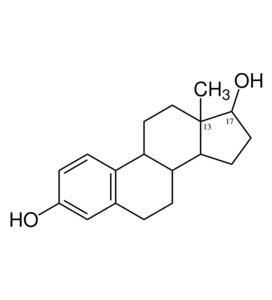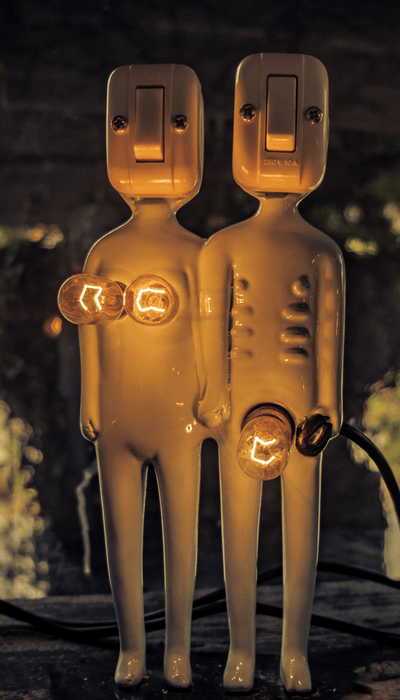Why Menopause Might Reduce Your Sex Drive
There may be many reasons for a diminished sex drive, but in some cases, women between the ages of 40 and 60 often experience a lack of desire to be intimate with their partner as a direct result of perimenopause or menopause, also known as “the change.”
If you find that perimenopause or menopause is lowering your sex drive, there are remedial steps that you can take. It is, however, important that you pay attention to the problem before it affects your relationship, self-confidence, or quality of life. (1)

The main hormones that affect your sex drive
When you are menopausal, your estrogen and testosterone levels drop, causing an array of changes in your body. Women experiencing perimenopause can also be affected in the same manner. These changes can include a lower sex drive. When you are going through the change, the drop in hormone levels can desensitize you to touch or sensual stimulation.
As your estrogen levels decrease, it can also limit blood flow to your vagina and affect lubrication, making intimacy painful. The combination of reduced sensitivity and lubrication is, ultimately, why your sex drive is lower than it was during the perimenopausal stage. Other contributing factors during menopause can be depression, anxiety, poor sleep, and bladder control problems.
Why these hormones decrease with menopause

As your ovaries get older, they release fewer hormones. This has an influence on two hormones called Luteinizing Hormone (LH) and Follicle Stimulating Hormone (FSH) that has the job of regulating your estrogen, testosterone, and progesterone. This causes a decline in your estrogen and testosterone levels.
How to curb the symptoms of a low sex drive
How you should go about to get your sex drive going again typically depends on a specific problem. If you are unresponsive to touch, stroking, or sexual thoughts, and your relationship with your partner is intact, you may want to ask your partner to spend some time and make an effort to boost your arousal. You can also consider consulting with your healthcare provider to find out if estrogen replacement therapy is a viable option.
If intimacy is painful due to insufficient vaginal blood flow and lubrication, try using water-soluble lubricants like Astroglide. Stay away from non-water-soluble lubricants like Vaseline as it inhibits the contraceptive qualities of condoms. These types of lubricants can also be a breeding ground for bacteria.
There are other treatments available for vaginal dryness. Certain drugs can thicken your vaginal tissue and make it less fragile. Keep in mind, however, that these drugs can also thicken the lining of the uterus and lead to blood clot forming and strokes.
It is important to find the cause of your lowered sex drive. If you are depressed or anxious, seek professional treatment or use relaxation techniques. Sometimes, problems with your relationship can also be detrimental to your sex drive. Underlying or unresolved issues you have with your partner can manifest in physiological ways and be made worse by your drop in hormone levels. In cases like these, undergoing therapy can work wonder to restore your sex drive.
Certain medications can also diminish your sex drive. Ruling out every other potential cause may not be as easy. Chances are that if you took steps to combat dryness and poor sensitivity to sexual impulses, your sex drive will be restored. If not, start regulating your sleeping patterns, address potential stress and anxiety, and make an appointment with your doctor to find out if you have bladder problems or conditions similar to a urinary tract infection.

Don’t worry, it will get better!
Naturally, you may be in dire straits to find a solution for your lowered sex drive as soon as possible. Intimacy is, after all, an integral part of your relationship. Luckily, a lowered sex drive due to menopause is a temporary problem. If you are struggling to find a solution to your low sex drive, all you have to do is relax and keep communication open with your partner. Tell them that your low sex drive is caused by a drop in your hormone levels and that it’s not an indication of your feelings towards them.
If you no longer have to use contraceptives or if your children moved out of the house, make use of the newly found freedom to boost your sex drive.
Many times, this will alleviate anxiety and pressure that you feel when you have to be intimate. When menopausal or experiencing the change, a relaxed state of mind can do wonders for your sex drive. Simply realizing that you are in control and that your low sex drive is a temporary problem will solve your problem and bring your sex drive back up to par. (2)
Vergo is an interactive program that gives women the tools to understand their Menopause.
- The Vergo iOS symptom tracker (emailable to your healthcare provider)
- The Vergo QuikTrak symptom tracker (the refillable pdf version, also emailable)
- Vergo’s Interactive Education Program, Journey Without a Roadmap: Understanding Menopause
- Curated guides to the biggest questions and hottest topics around menopause symptoms and treatment options
- Must-have information on male menopause: There’s an Andropause? (an overview of what your guy could be going through)
- Terminology Cheat Sheets
Click the button below for more information!
REFERENCES
- Debra Sullivan, P. M. (n.d.). How does menopause affect sex drive? Retrieved from medicalnewstoday.com: https://www.medicalnewstoday.com/articles/320266.php
- Sexual Health & Menopause: Sexual Problems at Midlife. (n.d.). Retrieved from The North American Menopause Society: http://www.menopause.org/for-women/sexual-health-menopause-online/sexual-problems-at-midlife/pain-with-penetration



